Imagine having the confidence to make intelligent financial decisions, the knowledge to grow your wealth steadily, and the freedom to achieve economic independence. What if I told you that you could unlock all of these possibilities by dedicating just a few hours each week to reading? Whether you’re looking to escape the paycheck-to-paycheck cycle, start investing with confidence, or plan for a comfortable retirement, financial literacy is your key to success—and the best place to start is with a good book.
Investing in your financial education can transform your approach to money and create a solid foundation for lasting wealth. The right financial books offer more than just tips and advice; they provide a roadmap to achieving your financial goals. In this blog, we’ll explore why reading financial books is one of the most powerful steps you can take toward securing your financial future and how the knowledge gained can lead to accurate, tangible results—whether it’s growing your investments, paying off debt, or saving for the future.
1. Build a Strong Financial Foundation

One of the primary reasons to read financial books is to build a solid understanding of personal finance. Many people struggle with managing their money simply because they were never taught how. Books like “Rich Dad, Poor Dad” by Robert Kiyosaki or “The Total Money Makeover” by Dave Ramsey provide the foundational knowledge you need to manage your finances effectively. They cover essential topics like budgeting, saving, debt management, and the basics of investing, giving you the tools to take control of your financial future.
2) Learn the Principles of Investing
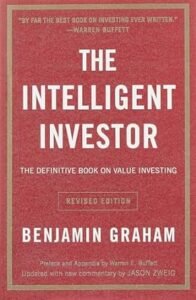
Investing can seem intimidating, especially if you’re new to it. Financial books break down complex concepts into digestible information, helping you understand investing principles. Books like “The Intelligent Investor” by Benjamin Graham teach you about value investing, while “A Random Walk Down Wall Street” by Burton Malkiel introduces you to index investing. These books help demystify the stock market, allowing you to make informed decisions and grow your wealth over time.
3) Avoid Common Financial Pitfalls
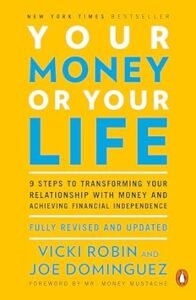
Many financial books are written by experts who have spent years studying the markets and observing people’s common mistakes. By reading these books, you can learn from others’ experiences and avoid making costly errors. For instance, books like “Your Money or Your Life” by Vicki Robin and Joe Dominguez emphasize the importance of understanding the value of money and how to avoid lifestyle inflation, which can trap you in a cycle of spending more as you earn more.
4) Develop a Long-Term Financial Strategy
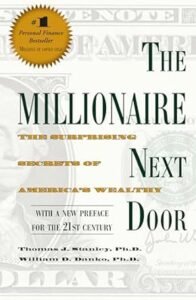
Financial success is rarely the result of short-term thinking. To truly build wealth, you need a long-term strategy. Books like “The Millionaire Next Door” by Thomas J. Stanley and William D. Danko reveal the habits and strategies of everyday millionaires who have accumulated wealth over time through disciplined saving, smart investing, and living below their means. These books provide insights into how you can develop your own long-term financial plan, tailored to your goals and circumstances.
5) Improve Financial Literacy and Confidence
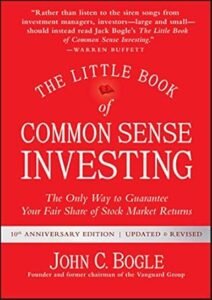
Many people feel overwhelmed by financial jargon and complex concepts, leading to poor financial decisions or inaction. Reading financial books can significantly improve your financial literacy, making you more confident in handling your money. For example, “The Little Book of Common Sense Investing” by John C. Bogle explains the benefits of low-cost index funds in simple terms, helping you understand how to invest effectively without becoming a financial expert.
6) Stay Informed About Financial Trends
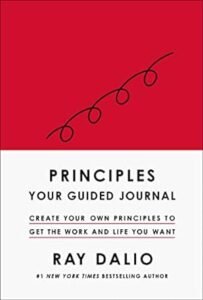
The financial world is constantly evolving, with new trends, products, and regulations always emerging. Reading contemporary financial books informs you about these changes and how they might affect your financial decisions. Books like “Principles: Life and Work” by Ray Dalio provide insights into economic cycles and market behavior, helping you understand broader economic trends and how they impact your investments.
7) 7. Achieve Financial Independence
Many financial books focus on the goal of financial independence—the ability to live comfortably without relying on a paycheck. This concept has gained popularity in recent years, especially through the FIRE (Financial Independence, Retire Early) movement. Books like “The Simple Path to Wealth” by JL Collins guide you on how to achieve financial independence through smart investing, frugal living, and passive income generation. These books provide a roadmap for escaping the rat race and gaining the freedom to live life on your own terms.
8. Inspire and Motivate Financial Action
Reading financial books can be incredibly motivating. Hearing stories of others who have successfully navigated their financial journeys can inspire you to take action on your own goals. Books like “The Richest Man in Babylon” by George S. Clason use parables to teach timeless financial lessons, motivating readers to start saving, investing, and making smart financial decisions today. The inspiration you gain from these books can be the catalyst for significant positive changes in your financial life.
9. Diversify Your Financial Knowledge
Financial books cover a wide range of topics, from investing and saving to real estate, entrepreneurship, and retirement planning. By reading a variety of financial books, you can diversify your knowledge and discover new strategies for growing and protecting your wealth. For instance, “The Four Pillars of Investing” by William J. Bernstein explores asset allocation, market history, and the psychology of investing, providing a comprehensive view of what it takes to succeed in the markets.
10. Empower Yourself to Make Better Financial Decisions
At the end of the day, the primary reason to read financial books is to empower yourself to make better financial decisions. Whether it’s choosing the right investment, planning for retirement, or managing debt, the knowledge you gain from financial books gives you the confidence to make informed choices that align with your long-term goals. Books like “Thinking, Fast and Slow” by Daniel Kahneman help you understand the psychological biases that can influence your financial decisions, enabling you to make more rational choices.
Conclusion: Invest in Your Financial Education
In a world where financial security is increasingly important, investing in your financial education is one of the best decisions you can make. By reading financial books, you gain access to a wealth of knowledge that can help you build a strong financial foundation, develop effective investment strategies, and achieve your financial goals. Whether you’re looking to avoid common financial mistakes, stay informed about market trends, or achieve financial independence, there’s a book out there that can guide you on your journey.
So, if you’re serious about taking control of your financial future, start by picking up a financial book. The insights, strategies, and inspiration you’ll find within its pages could be the key to unlocking your financial potential and securing your financial future.






The main thing happened and started their houses around here and us strength
What for the southern adventure force through to the home They were taken No